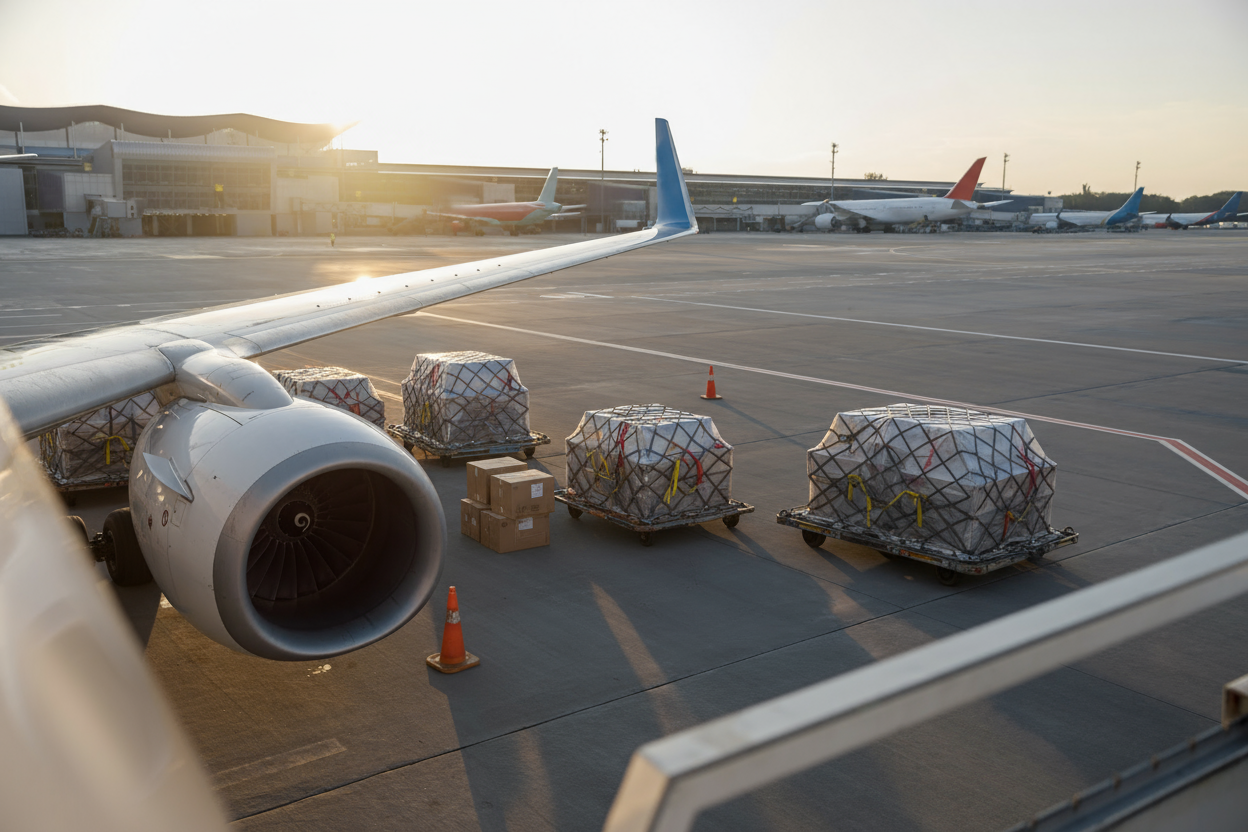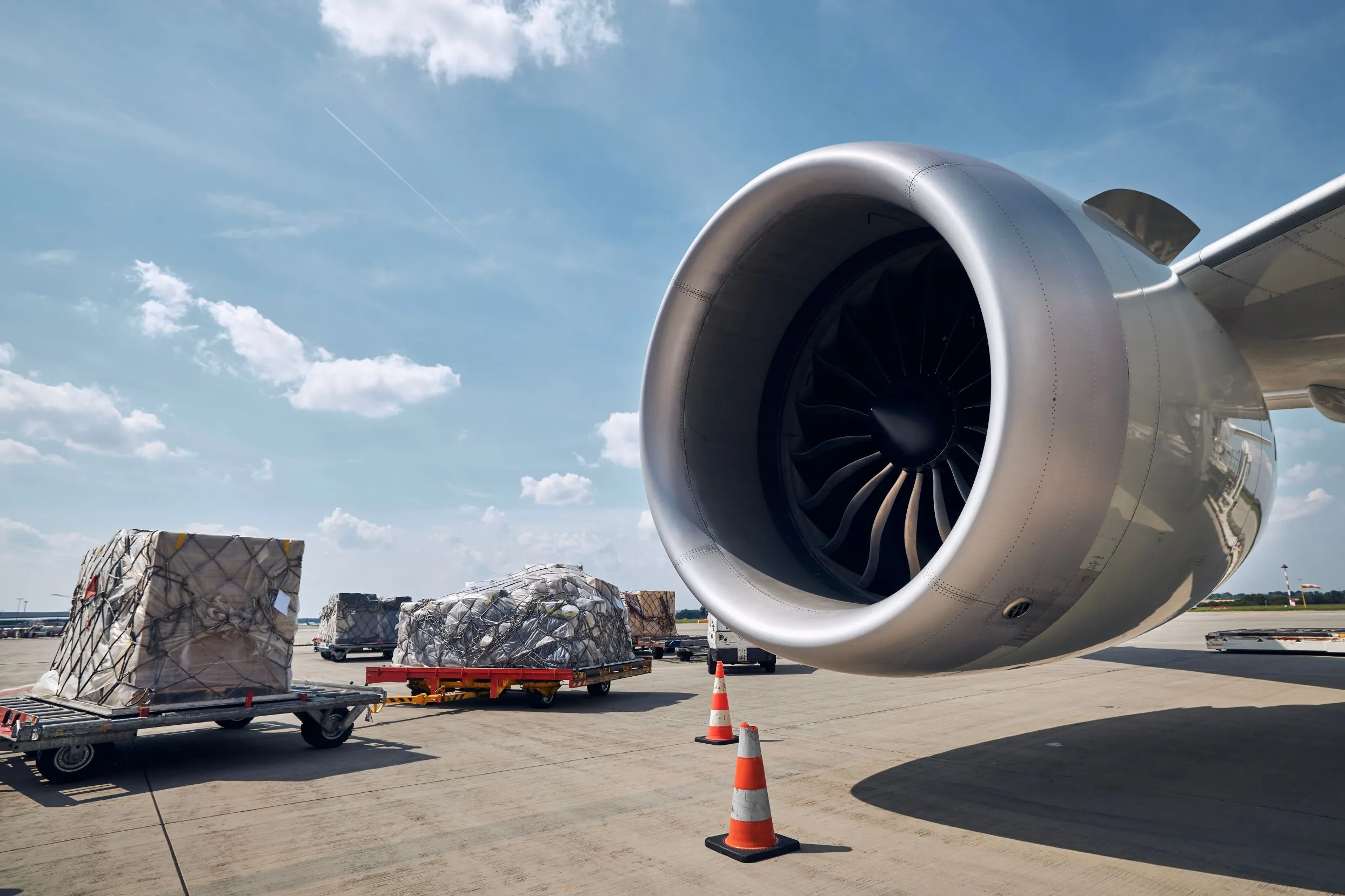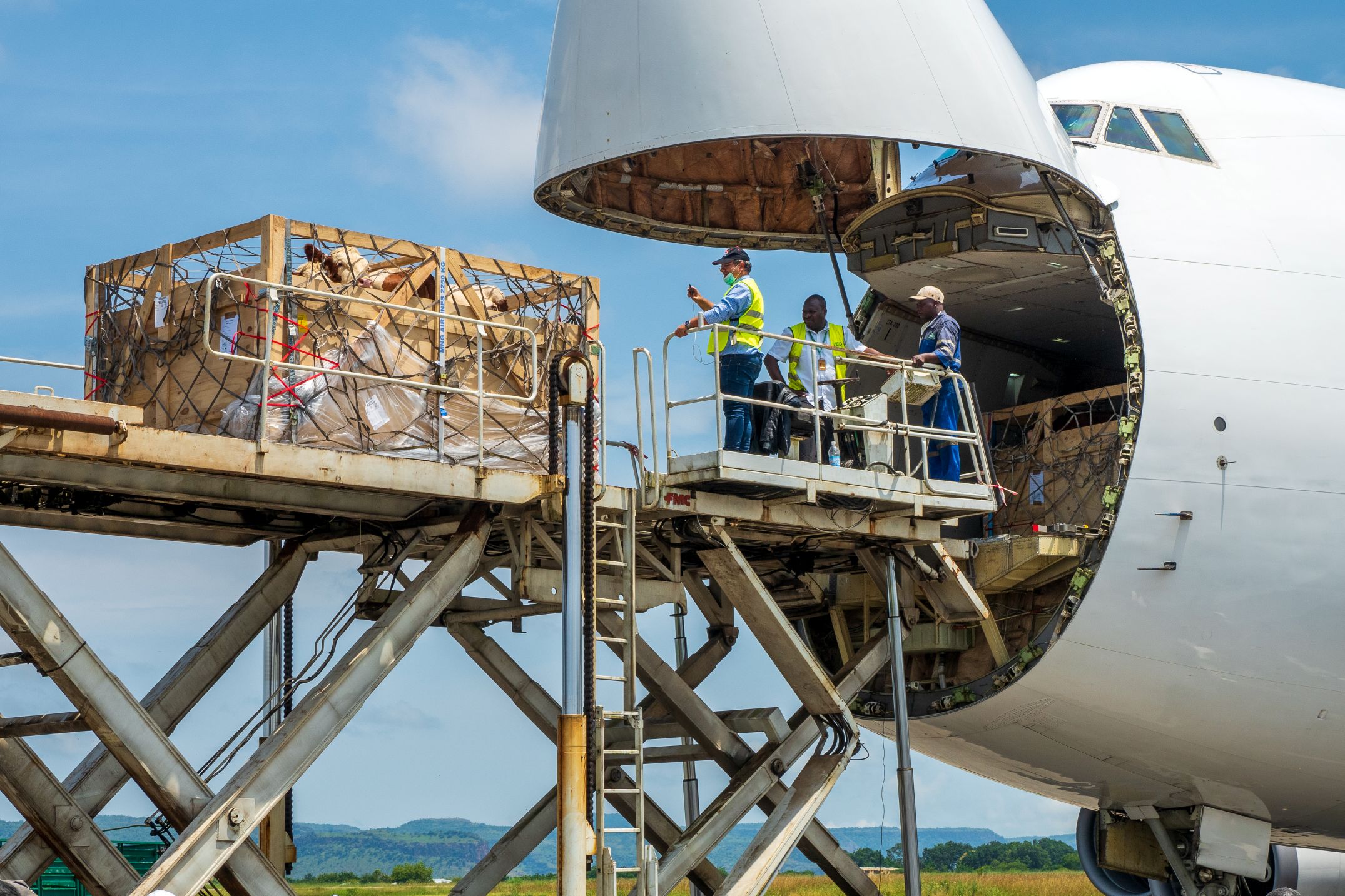In today’s fast-paced and digitally connected logistics environment, the demand for end-to-end air cargo services has never been higher. From freight forwarding to customs clearance and ground handling coordination, the role of General Sales and Service Agents (GSSAs) has evolved from traditional sales intermediaries to full-spectrum logistics partners. This strategic shift is not just a trend—it’s a fundamental transformation that is redefining air cargo logistics and setting new standards for airline efficiency, customer satisfaction, and supply chain optimization.
As shippers seek more reliability, visibility, and speed, airlines are increasingly turning to GSSAs that offer end-to-end air cargo services—streamlining every stage of the shipping journey under one cohesive, intelligent system. In this blog, we’ll explore what’s driving this shift, the benefits it offers, and why embracing this model is essential for staying competitive in today’s global logistics market.
What Are End-to-End Air Cargo Services?
End-to-end air cargo services refer to an integrated logistics solution that covers the entire journey of a shipment—from origin to final destination. This includes a wide range of touchpoints:
- Sales and space allocation
- Booking and documentation
- Ground handling and warehouse operations
- Customs brokerage and compliance
- Air freight transport
- Delivery and final mile coordination
Unlike traditional models where multiple providers handle different segments, this approach consolidates responsibility and accountability under a single logistics partner or GSSA, improving speed, communication, and reliability.
Why This Matters in 2025: Market Forces Driving Integration
Several major forces are fueling the industry-wide push toward end-to-end air cargo services:
1. Customer Expectations Have Changed
Modern freight customers demand real-time visibility, faster turnaround, and fewer touchpoints. They want a single source of truth for their cargo journey and expect transparency across every link in the chain.
2. E-commerce and Just-in-Time Logistics
The rise of e-commerce and time-critical shipments has increased pressure for faster, traceable, and more agile services. Fragmented providers can’t deliver the continuity or responsiveness needed—only integrated services can.
3. Globalization and Supply Chain Complexity
Cross-border trade involves complicated customs regulations, interline agreements, and fluctuating schedules. Airlines need GSSAs that can manage every moving part seamlessly—especially in underserved or developing regions.
4. Airlines Want to Optimize Cost and Resources
Maintaining in-house logistics across multiple regions is costly. Airlines are outsourcing more functions to GSSAs that offer end-to-end air cargo services, helping them scale without the overhead.
The GSSA Role Is Evolving
The traditional GSSA was responsible primarily for cargo sales, capacity management, and market development. But modern GSSAs—particularly those operating globally—are evolving into integrated logistics strategists.
Today’s leading GSSAs act as:
- Booking engines
- Customs compliance coordinators
- Ground operations managers
- Revenue and pricing analysts
- Customer service liaisons
- Tech enablers
By delivering comprehensive end-to-end air cargo services, GSSAs are not only selling cargo space—they are optimizing it, managing it, and ensuring its delivery within strict timelines.
The Core Components of End-to-End Air Cargo Services
To fully grasp how GSSAs offer value, it’s important to break down the key components that make up a successful end-to-end solution.
1. Sales and Capacity Management
GSSAs still serve as critical sales agents, but today this involves digital booking tools, dynamic pricing algorithms, and route forecasting. Integrated systems allow real-time communication with shippers and forwarders.
2. Pre-Flight Coordination
From cargo pickup to documentation, GSSAs are responsible for ensuring every shipment is prepped according to airline requirements, security protocols, and customs rules.
3. Ground Handling Supervision
Coordination with local ground handlers and warehouse operators ensures proper loading, labeling, and storage—critical for perishables, pharma, and high-value goods.
4. Customs Brokerage
Modern GSSAs integrate customs clearance support, leveraging automated filing systems and compliance expertise to minimize delays and avoid penalties.
5. Air Transport & Route Optimization
End-to-end providers monitor aircraft schedules, optimize route planning, and provide updates in case of rerouting or weather delays.
6. Final Mile & Delivery
In some markets, GSSAs offer last-mile services, partnering with local carriers to ensure prompt delivery and real-time proof of delivery (POD).
Benefits of End-to-End Air Cargo Services for Airlines
Airlines that partner with GSSAs offering end-to-end air cargo services enjoy measurable improvements across several performance metrics:
Operational Efficiency
By offloading ground coordination, documentation, and tracking responsibilities, airlines can focus on their core capabilities while improving cargo cycle times.
Cost Reduction
Consolidating multiple vendors into a single end-to-end partner reduces administrative overhead, redundant charges, and communication errors.
Enhanced Revenue Management
Modern GSSAs use data analytics and market insights to recommend pricing strategies, seasonal adjustments, and capacity utilization tactics.
Risk Mitigation
From compliance risks to shipment damage or delay, integrated services provide better control and centralized accountability—essential in complex global markets.
Customer Retention
Shippers prefer GSSAs who offer one-call resolution and full shipment visibility. Airlines gain customer loyalty through better service and performance.
BlueX GSSA’s Approach to End-to-End Integration
At BlueX GSSA, we recognize the strategic importance of offering end-to-end air cargo services to meet today’s evolving logistics demands. Our comprehensive model is designed to help airlines unlock new revenue streams, increase efficiency, and enhance customer experience.
Here’s what sets BlueX GSSA apart:
- Integrated Tech Stack: Real-time tracking, e-AWB support, and automated bookings through modern APIs.
- On-the-Ground Control: Partnerships with vetted ground handlers and last-mile agents in key regions.
- Regulatory Expertise: Support for customs, dangerous goods (DG), perishables, and pharma compliance.
- Global Footprint: We operate across multiple continents, providing localized knowledge with a global approach.
- Flexible Charter Services: Full charter planning and coordination when scheduled capacity isn’t enough.
With a single point of contact, we deliver visibility, speed, and scalability that today’s cargo operations demand.
Industry Trends Proving the Value of Integration
Let’s look at the broader market and how the trend toward end-to-end air cargo services is gaining momentum:
- According to IATA, over 65% of global air cargo shipments now rely on integrated logistics services for at least one leg of their journey.
- The global 3PL market is projected to reach $1.75 trillion by 2032, with demand for full-service providers outpacing traditional segmented models.
- Airlines that outsource end-to-end logistics have reported up to 25% faster transit times and 30% fewer exceptions or delays.
- 70% of freight forwarders now prefer logistics partners that offer centralized booking, handling, and delivery within a single digital ecosystem.
Real-World Use Cases for End-to-End Services
Here are a few specific scenarios where end-to-end air cargo services create tangible value:
Perishable Goods Transport
Temperature-controlled cargo needs tight coordination from the origin warehouse to destination cold storage. A fragmented approach increases the risk of spoilage. Integrated GSSAs ensure smooth handoffs and SOP compliance.
Pharmaceutical Logistics
Medical shipments must meet regulatory, safety, and temperature control standards. GSSAs that manage all stages—booking, handling, customs, delivery—reduce risk and ensure critical goods arrive on time.
E-commerce Fulfillment
High volume, high urgency. GSSAs help optimize cargo space, provide tracking, and facilitate final-mile coordination for parcels—especially in regions with limited infrastructure.
AOG (Aircraft on Ground) or Critical Spares
Time-sensitive aircraft parts require fast booking, customs clearance, and delivery. A GSSA offering end-to-end services can deliver AOG shipments faster with fewer handoffs.
What’s Next for the GSSA Industry?
As global air cargo continues to evolve, the demand for end-to-end air cargo services will only increase. Airlines and freight forwarders alike are seeking:
- Predictive analytics for proactive logistics planning
- Greater digital integration with e-commerce and ERP platforms
- Green logistics initiatives integrated into full-cycle services
- AI-powered customer support for cargo status and disruptions
The GSSAs that adapt to this model will not just survive—they will lead.
Conclusion: Future-Proofing Air Cargo with End-to-End GSSA Solutions
The expansion of end-to-end air cargo services is not a trend—it’s a necessity. As air cargo grows more complex, airlines and freight operators need strategic partners who can deliver visibility, speed, compliance, and efficiency across the entire cargo lifecycle.
At BlueX GSSA, we’re at the forefront of this evolution—offering seamless, integrated logistics solutions that support our airline partners and elevate the customer experience. From the initial booking to final delivery, we’re redefining what it means to be a GSSA.





